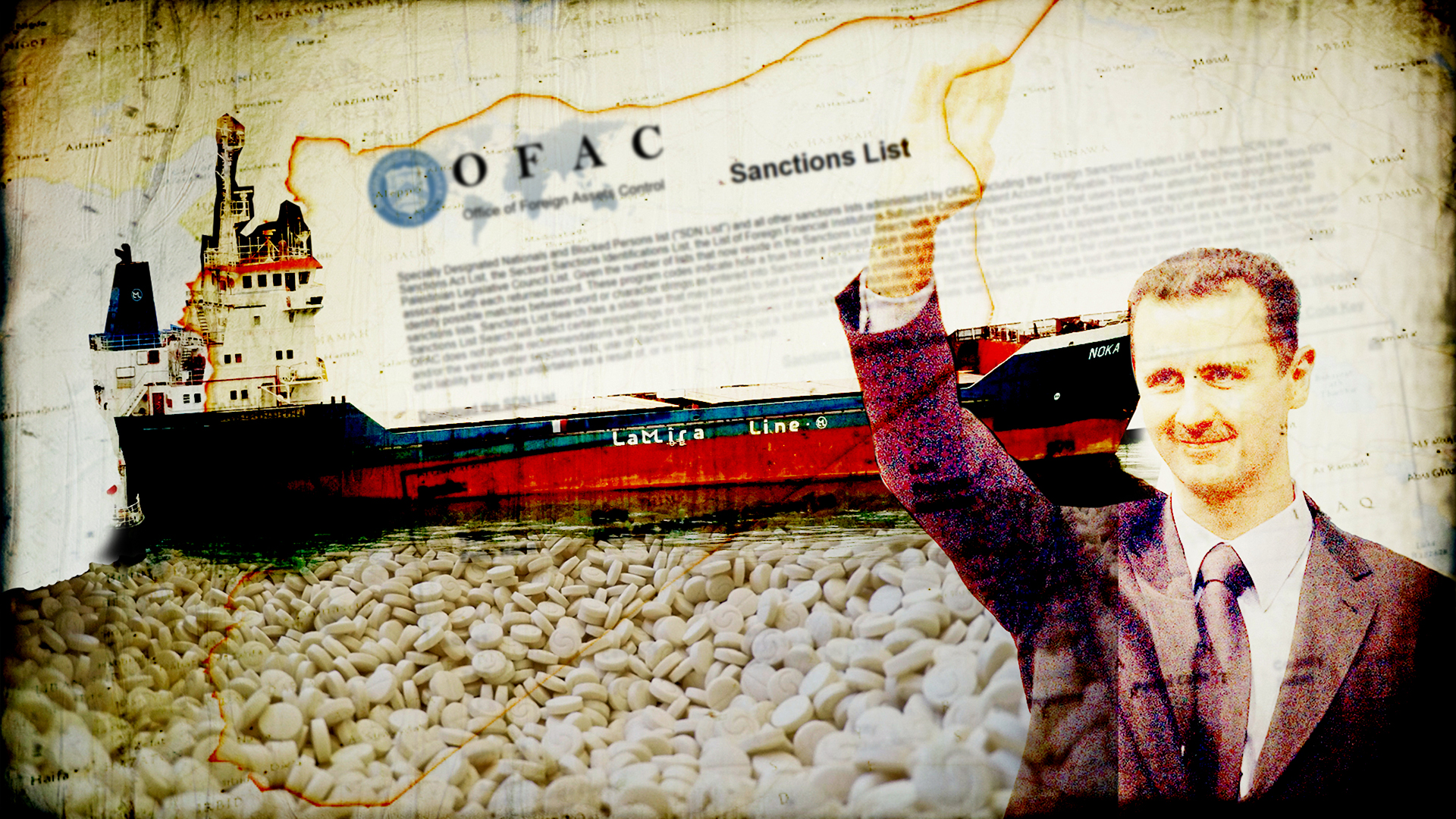A shipment of 3 million “jihadist pills” and a travel agency in the southern suburbs of Athens.
In March 2024, at an unsuspected time with what has been happening in the last 24 hours in Syria, the U.S. authorities announced sanctions on 11 individuals and companies believed to have supported Bashar al-Assad’s regime.
Among them were two individuals allegedly linked to the seizure of one of the largest drug shipments in recent years off the coast of Crete. Under Assad’s watch, Syria had become a drug-producing country, primarily manufacturing Captagon tablets – amphetamines often referred to as “jihadist pills.”
The trail of Assad’s network also led to a travel agency in Glyfada. Operating for about a year from a corner shop in a quiet neighbourhood, the agency left little impression—residents told iMEdD they could barely recall it.
The Boarding Action
The story begins in December 2018. Special Forces of the Coast Guard carried out a boarding operation on the Syrian-flagged cargo ship Noka, which had departed from Lattakia, Syria, bound for the port of Benghazi. It was unclear whether the shippers of the cargo were legitimate entities or ghost companies, similar to the recipients in Libya.
According to official documents, the ship’s manifest listed food and detergents as its cargo. However, authorities found 6 tons of processed cannabis and 3,127,360 Captagon pills hidden in the double bottoms of eight containers. The Syrian captain and the other ten crew members of the Noka were arrested. While they denied any knowledge of the drugs, some claimed they feared for their lives.
“I’m an oiler by trade. I worked six-hour shifts, eating and sleeping until the next shift came,” testified a crew member. “The containers were placed in front of us on the ship and had gone through Syrian state scanners,” he said. The eleven sailors remained in custody for 18 months and were eventually found not guilty at a trial in Heraklion. In March 2021 a different court ordered that the ship be returned to its owner.
Al-Kayali
A short time later, an investigation by the OCCRP network revealed that the actual owner of the cargo ship Noka was Syrian Taher al-Kayali, now 64, who was linked to the family of Syrian President Bashar al-Assad. Kayali, who reportedly lived in Italy until recently, was included on a list of individuals and companies that were placed on the US sanctions list last March for their support of the Syrian president through illicit financial transactions, drug trafficking, and illegal trafficking of Syrian goods, it was noted.
The U.S. Treasury Department’s Office of Foreign Assets Control (OFAC) is specifically referring to the drug shipment case in Crete. It describes Kayali’s ships as carrying Captagon pills and hashish, “both well-known funding sources for the Assad regime,” as noted. “Al-Kayali used [the Syria-based company] Neptunus to purchase the cargo ship Noka, which was carrying over $100 million worth of Captagon and hashish when it was intercepted in 2018 by Greek authorities on its way from the Syrian port of Lattakia to eastern Libya,” the report stated.
Bashar al-Assad’s regime has fallen in Syria. How will this change the Middle East?

Bashar al-Assad’s regime had withstood more than a decade of uprisings, civil war and international sanctions since the onset of widespread protests in 2011. Yet, it collapsed in a remarkably short period of time.
The Travel Agency
As part of the same set of sanctions, there is a second person linked to Greece: Syrian Mahmoud Abulilah Al-Dj, now 41 years old. He is described as responsible for the Noka drug shipment and three other shipments seized in Libya. Al-Dj was charged with drug and human trafficking and allegedly registered a travel company with offices in Syria and Dubai. The OFAC report noted that the travel company opened a branch in Greece at some point, without further details.
iMEdD identified a travel company with the same name listed in the Greek Business Register – General Commercial Register (G.E.MI.). It was founded in May 2023 with a capital of 25,000 euros in Glyfada, and was dissolved in March 2024. Two Syrians appear in the register as founders and shareholders, one of whom is listed with the full details of Al-Dj, the individual who has been sanctioned by the US as an international drug trafficker and supporter of Assad (Editor’s note: in the Greek Registry there is an additional middle name, which is not mentioned in the different versions of the full name given by the US authorities).
iMEdD sent written queries to the email addresses of the company’s founders as registered with G.E.MI. As of publication of the article, there was no response. We visited the address listed as the company’s headquarters in Glyfada. It is a neighbourhood near the main road, and on Monday afternoon, a few people walking on the street were enjoying the winter sun.
A tenant of the apartment building and a shop customer on the opposite side of the street told iMEdD that the travel agency had been operating for a few months in the corner shop on the ground floor, which now houses a barbershop. Both individuals said they could barely remember the travel agency.
Assad and Captagon
An analysis by the Global Initiative against Transnational Organized Crime, a Geneva-based organisation, noted that Captagon pill production in Syria had escalated in recent years and was taking place in industrial-scale facilities in areas under the Assad regime’s control, “providing it with a crucial financial lifeline amid the country’s costly and protracted civil war.”
The same analysis (November 2023) stated that the illicit trade in amphetamine pills had reached an all-time high, with an estimated value of more than $5.7 billion per year. “This highly addictive amphetamine has flooded Western Asia’s streets and is now favoured by drug users across the full spectrum of society, from affluent youth in the Gulf to blue-collar workers in countries such as Iraq and Jordan, where the drug can often be bought for as little as a few dollars per pill,” the analysis noted.
Additionally, it pointed out that “although Damascus has always denied any involvement, several influential members of the Assad family have been targeted by Western sanctions for this reason, including Maher al-Assad, the president’s younger brother and commander of the army’s infamous Fourth Division.”
